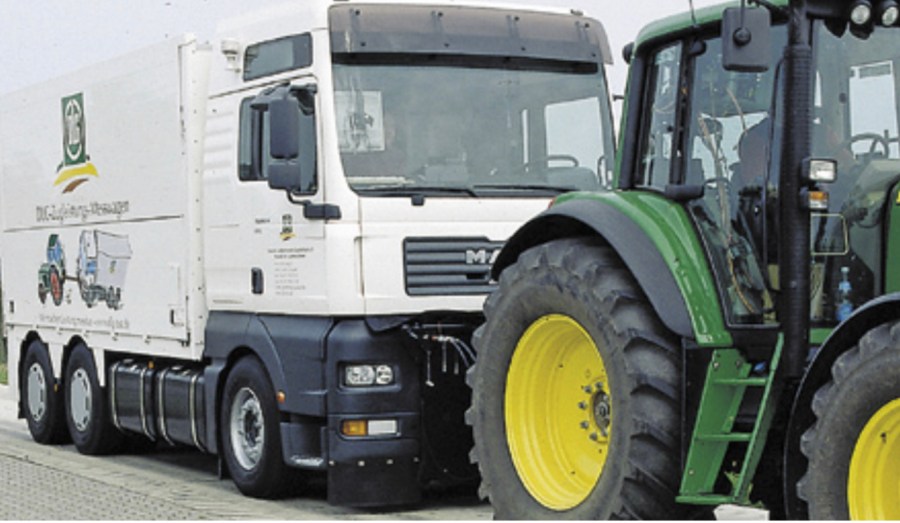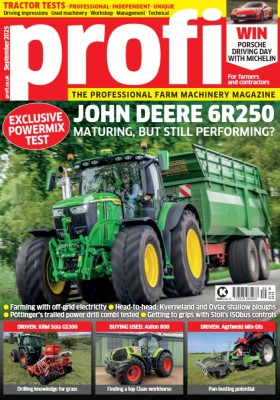With red diesel prices hovering around the 50p/litre mark, it’s hardly surprising that fuel consumption has become a more significant factor when considering a new tractor purchase. Our updated profi Powermix test aims to give buyers a feel for how their potential candidates stack up against each other in terms of their likely litres per hectare returns across a range of farming tasks. To date, 18 tractor models – some current, some now superceded – have been subjected to this test.
Fuel guzzle differences of 16-19 litres/ha for ploughing and 7-11 litres/ha for power harrowing may not sound all that staggering, but over a substantial farmed area – and with a diesel price of 50p/litre plus – those potential savings offered by the more economical tractors can soon take on increasingly attractive financial proportions.
A major problem in the past has been the difficulty in producing a fair measurement of fuel efficiency to enable such machine comparisons to be drawn. A test station’s theoretical g/kWh figures have their place,
but they also have their limitations when it comes to determining what a tractor is likely to achieve in terms of its litres/ha fuel use in the field.
And that’s exactly why the DLG originally set about developing the Powermix test, a consumption assessment that centres around the capability of the test station’s brake truck to realistically simulate the individual tractor applications of ploughing, sowing and baling by placing the appropriate drawbar, pto and hydraulic loads on the particular test tractor in question.
Clearly these pre-programmed loads need to match the size of the tractor – there is little point in applying seven furrows of simulated load on to a 60hp tractor – so the brake truck does just that; it alters the applied loads according to the test tractor model’s maximum output. The clever bit, however, is that even though the amount of load is varied according to tractor size, the performance curve profile – the curve reflects, for example, the changing load when ploughing up a slope or working through a wet patch – is always identical for a given type of work, so all equivalentsized tractors are subjected to exactly the same treatment.
For more up-to-date farming news and reviews click here and subscribe now to profi for just £3.99 an issue.






